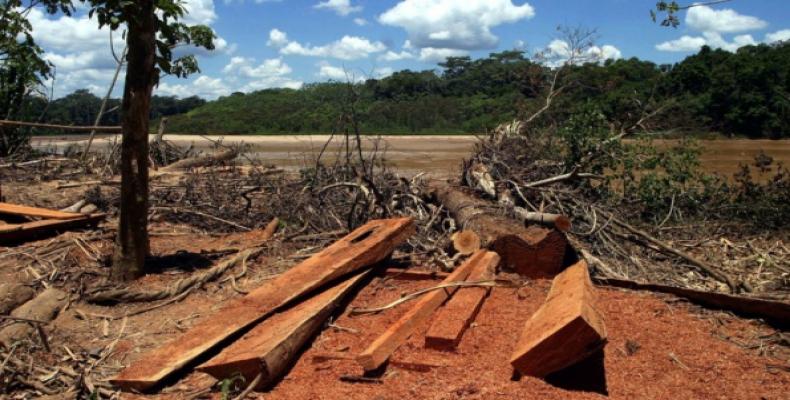La Paz, October 9 (teleSUR-RHC)-- Presidents and foreign dignitaries from around the world are heading to the Bolivian city of Cochabamba this weekend for the second World People's Conference on Climate Change where, unlike the United Nations process, the interests of developing nations will be the top priority.
This will be the second time Bolivia hosts such a conference, and for a reason: it’s one of the countries that’s most likely to feel the effects of greenhouse gases emitted by the industrialized world.
“In Bolivia, you can see the changes that the variable weather generates,” said former Vice Minister of the Environment Juan Pablo Ramos, “like more frost, more rain, less rain and even drought in the different regions.”
What’s unique about the people's conference on climate change is that leaders, scientists, and activists hear directly from grassroot communities, including some of the world’s poorest people. More than 8,000 delegates will voice their concerns to U.N. Secretary-General Ban Ki-moon, Venezuelan President Nicolas Maduro and Ecuador’s head of state, Rafael Correa. What they will hear will be what matters most to people in small, developing nations like Bolivia itself.
“In the case of Bolivia, more than 66 percent of the greenhouse gas emissions come from deforestation, so if we want to fight against climate change in Bolivia we have to halt deforestation,” Pablo Solon, a former Bolivian Ambassador to the U.N., told teleSUR English.
The South American nation has taken it upon itself to advocate for climate change issues on behalf of other developing nations, which comes as no surprise to environmental activist Moira Zuazo. Speaking to teleSUR English, she noted that ‘’70 percent of the Bolivian people say that development is less important than Mother Earth and we are listening to them,’’ Zuazo says.
At a pre-conference meeting in La Paz on Thursday, activists such as Zuazo reiterated a demand voiced at the 2010 People’s Conference that developed countries need to pay their “climate debt” to the developing world for having contributed the most to the problem of climate change.
‘’We have as human beings a responsibility toward Mother Earth and I think that’s going to be the most important contribution of this conference,” said Zuazo.
Draft proposals to combat climate change on a binding, international level will be discussed in Cochabamba and presented for consideration at a major U.N. climate change conference to be held in Paris in December.


